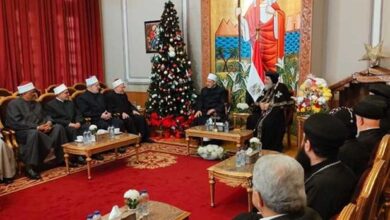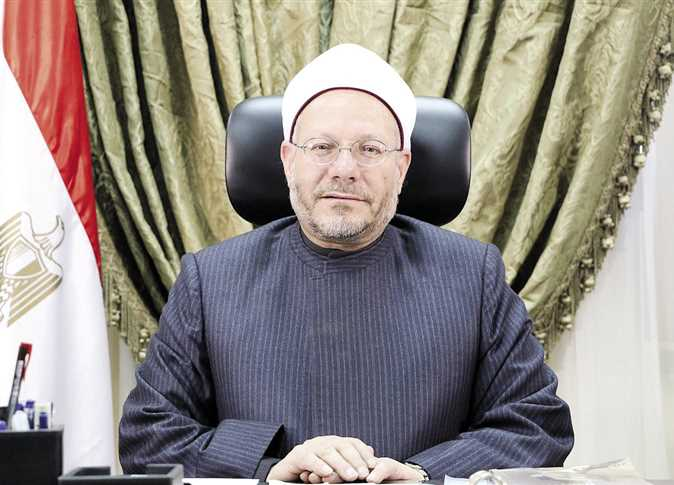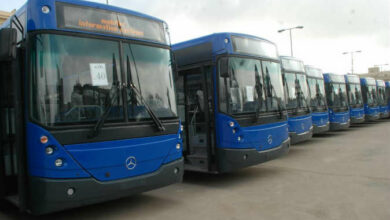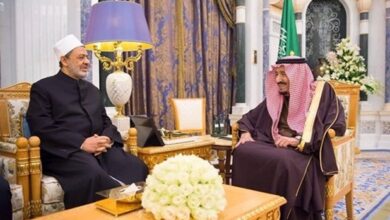An Al-Azhar cleric’s religious edict condoning violence, which has embroiled the country in controversy, is among the most highlighted stories in Thursday’s newspapers.
Independent Youm7 leads with the story about Sheikh Hashem Islam, a member of the Fatwa (religious edicts) Committee of Egypt's highest Islamic authority, who issued a fatwa sanctioning the killing of participants in large-scale anti-Muslim Brotherhood demonstrations slated for 24 August.
Former MP Mohamed Abou Hamed and pro-military TV presenter Tawfiq Okasha, along with others, have called for a million-strong demonstration in front of the Brotherhood's headquarters to protest what they see as the Brotherhood’s monopolization of authority and ongoing attempts to Islamize the state.
The report quotes Islam during a seminar at Cairo's Diplomats Club Tuesday as accusing those intending to protest of “a major treason to God and the nation.”
He condemned the call to demonstrate against President Mohamed Morsy, who he said was elected in free, transparent elections. Islam also cited verses of the Quran that allegedly support his comments.
The paper continues to cover the planned protests on its twelfth page, quoting a number of politicians who have denounced the 24 August protests. Amr Hamzawy, a former MP and head of the Egypt Freedom Party; Ahmed Maher, founder of the April 6 Youth Movement; Bahaa Abu Shaqa, a Wafd Party deputy; and Shady al-Ghazaly Harb, an activist, are among those who have refused to take part in the anticipated protests, the report states.
Al-Tahrir, another privately owned daily, writes that the weekly meeting of the Brotherhood’s Guidance Bureau on Wednesday mainly revolved around the procedures that should be taken if violence escalates at the demonstrations. The group has ordered the Interior Ministry to impose heavy security measures in front of the presidential palace and Brotherhood offices in different governorates across the country, independent Al-Watan reports.
Al-Shorouk, an independent paper, features a report on the attempts of presidential delegates to end a partial strike by the Public Transport Authority’s workers. The strike, which is taking place in four Cairo neighborhoods, started Monday to denounce new Transportation Minister Mohamed Rashed's refusal to affiliate the Public Transport Authority with the Transportation Ministry.
The paper quotes Tareq al-Baheiry, spokesperson for the Independent Syndicate of Public Transport Authority Workers, as saying, “We presented all of our demands to the presidential delegates. … In the case that our negotiations fail, the authority’s workers will go on full strike in three governorates, including Cairo, Giza and Qalyubiya, during Eid days.”
Freedom and Justice, the mouthpiece newspaper of the Brotherhood’s political arm, praises President Morsy's role in the Organization of Islamic Cooperation's extraordinary summit, running the sub-headline: “He led the Mecca summit for rescuing Burmese Muslims and solving the Palestinian problem.”
"It is time for the Syrian regime to go," reads another headline on the FJP paper’s front page, quoting the president during a closed session at the summit. Morsy has reportedly called on Egypt, Saudi Arabia, Turkey and Iran to cooperate to end the Syrian crisis.
Reporting on the same news, Youm7 highlights in a red, bold headline, “Morsy shakes hands with Ahmadinejad in Mecca.” The paper describes the important act between Morsy and Iranian President Mahmoud Ahmadinejad as a strong indicator of political cooperation between the two nations.
Furthermore, the Iranian president's invitation for Morsy to attend the Non-Aligned Movement summit, to be held in Tehran at the end of August, is considered by some to be a new chapter in diplomatic relations between Egypt and Iran, which drastically deteriorated during the reign of former President Hosni Mubarak.
In an op-ed, Ibrahim Eissa, Al-Tahrir's editor-in-chief, touches upon a sensitive and controversial topic: the obligation for women to wear the hijab in Islam. Eissa expresses his belief that wearing a head covering is an issue of personal choice for a woman, and not mandatory. He goes on to support his words with five reasons; among them: the wearing of the hijab is not one of the five pillars of Islam and there are no Quranic verses mentioning the word "hijab" that convey the message of covering a woman's hair. “Hijab comes in the Quran with the meaning of barrier or partition,” he writes in the column, which could provoke angry reactions in a society strong in conservative religious ideology.
The writer concludes by stressing that his op-ed is not a call for women to take off the hijab. However, he points out that the importance of hijab has been exaggerated only recently and that it has turned into a life-or-death issue in Egyptian society. Despite this, he says, it is not the only condition a woman must fulfill to be considered religious.
Egypt’s papers:
Al-Ahram: Daily, state-run, largest distribution in Egypt
Al-Akhbar: Daily, state-run, second to Al-Ahram in institutional size
Al-Gomhurriya: Daily, state-run
Rose al-Youssef: Daily, state-run
Al-Dostour: Daily, privately owned
Al-Shorouk: Daily, privately owned
Al-Watan: Daily, privately owned
Al-Wafd: Daily, published by the liberal Wafd Party
Youm7: Daily, privately owned
Al-Tahrir: Daily, privately owned
Freedom and Justice: Daily, published by the Muslim Brotherhood's Freedom and Justice Party
Sawt al-Umma: Weekly, privately owned
Al-Arabi: Weekly, published by the Nasserist Party
Al-Nour: Official paper of the Salafi Nour Party




